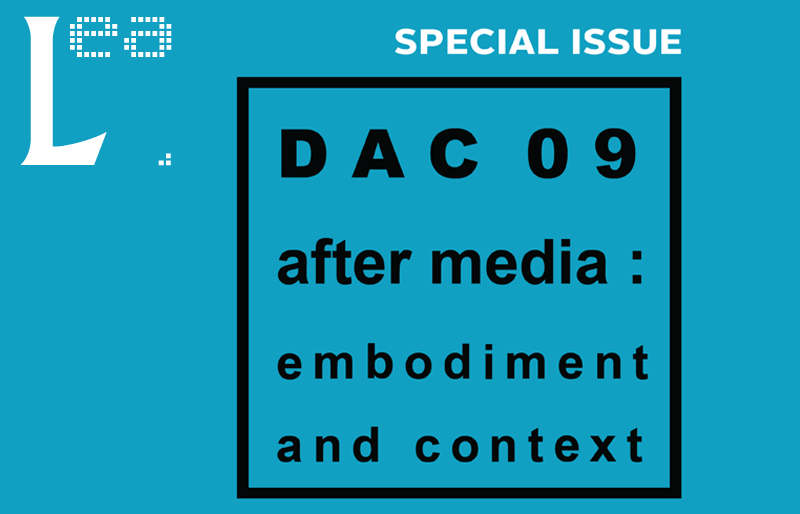
LEA Volume 17 Issue 2
Senior Editors for this volume: Lanfranco Aceti and Simon Penny
ISBN: 978-1906897-16-1
ISSN: 1071-4391
Reference: Anne Sullivan, Michael Mateas, and Noah Wardrip-Fruin, “Making Quests Playable: Choices, CRPGs, and The Grail Framework,” eds. Lanfranco Aceti and Simon Penny, Leonardo Electronic Almanac (DAC09: After Media: Embodiment and Context) 17, no. 2 (2012): 146-159.
Making Quests Playable: Choices, CRPGs, and the Grail Framework
by Anne Sullivan, Michael Mateas, and Noah Wardrip-Fruin
In table-top role-playing games, quests are goals that can be pursued in a variety of ways, providing structure to the game’s ongoing fiction and providing opportunities for role-play. In computer role-playing games, on the other hand, quests are generally structured as lists of tasks or milestones, with variability present only in combat or as a binary choice between completions associated with one or another faction/morality. Given this, the computer role-playing game quest is rarely playable – instead existing as a motivation-supplying wrapper around game systems that can be played. While such games can be compelling, they do not manage to live up to the name or potential of the role-playing game. For computer games to reach this potential, however, will require a new generation of tools: ones that reify assumptions appropriate to the playable, goaloriented quest, rather than the task checklist quest. The Grail Framework is a multi-element research project aimed at presenting a first working example of such a set of tools. This paper briefly describes one of its authoring elements (the QuestBrowser brainstorming tool) and one of its runtime elements (the Grailgm game master). While new tools cannot guarantee players a new experience, they can open up new potential spaces for designers and authors, creating conditions in which computer role-playing game fictions can become both authorially structured and meaningful opportunities for the deep experience of role-play.
Full article is available for download as a pdf here.
Vol 17 Issue 2 of Leonardo Electronic Almanac (LEA) is published on line as a free PDF but will also be rolled out as Amazon Print on Demand and will be available on iTunes, iPad, Kindle and other e-publishing outlets.
